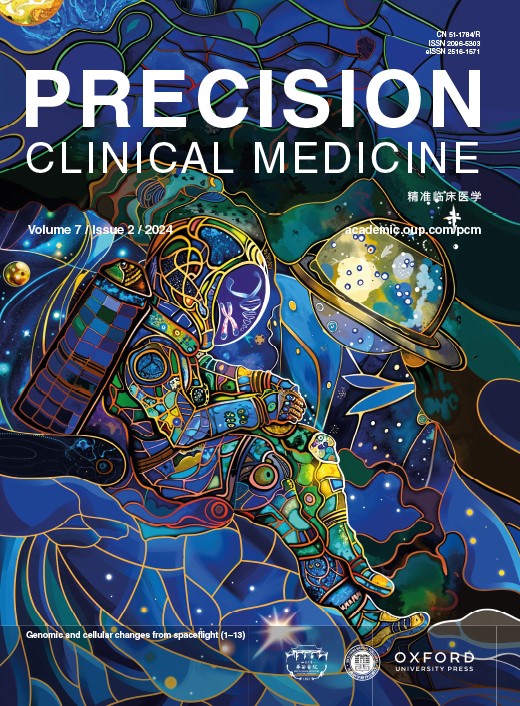中性粒细胞在调节炎症性肠病的致病和修复过程中的双重作用
IF 5
4区 医学
Q1 MEDICINE, RESEARCH & EXPERIMENTAL
引用次数: 17
摘要
中性粒细胞被认为是一种复杂的先天免疫细胞,在维持肠道黏膜稳态中起着至关重要的作用。它们在病原体感染和肠道炎症的急性期发挥强大的促炎作用并招募其他免疫细胞,但矛盾的是,它们也限制外源微生物的入侵并促进粘膜恢复。中性粒细胞的过度激活或功能障碍导致异常的免疫反应,导致多种自身免疫性和炎症性疾病,包括系统性红斑狼疮、类风湿关节炎和炎症性肠病(IBD)。IBD作为一种难治性肠道炎症性疾病,其发病和进展与复杂的免疫反应过程有关,其中中性粒细胞参与其中。然而,关于中性粒细胞在IBD的致病和修复过程中的潜在作用的共识仍未完全了解。积累的浸润性中性粒细胞穿过上皮屏障,导致肠道微生物生态失调,加重肠道结构损伤,降低肠道炎症的消退,增加IBD期间血栓形成的风险。矛盾的是,在IBD中,活化的中性粒细胞还与有效消除入侵的微生物群、促进血管生成和肠黏膜组织修复有关。在这里,我们讨论了中性粒细胞在肠黏膜炎症的发生和消退中的有益和有害作用,希望对中性粒细胞在IBD发病机制中的功能提供一个精确的概述。本文章由计算机程序翻译,如有差异,请以英文原文为准。
Dichotomous roles of neutrophils in modulating pathogenic and repair processes of inflammatory bowel diseases
Abstract Neutrophils are considered as complex innate immune cells and play a critical role in maintaining intestinal mucosal homeostasis. They exert robust pro-inflammatory effects and recruit other immune cells in the acute phase of pathogen infection and intestinal inflammation, but paradoxically, they also limit exogenous microbial invasion and facilitate mucosal restoration. Hyperactivation or dysfunction of neutrophils results in abnormal immune responses, leading to multiple autoimmune and inflammatory diseases including systemic lupus erythematosus, rheumatoid arthritis, and inflammatory bowel diseases (IBD). As a refractory intestinal inflammatory disease, the pathogenesis and progression of IBD are associated with complicated immune response processes in which neutrophils are profoundly involved. However, the consensus on potential roles of neutrophils in modulating pathogenic and repair processes of IBD remains not fully understood. Accumulated infiltrating neutrophils cross the epithelial barrier and contribute to microbial dysbiosis, aggravated intestinal architectural damage, compromised resolution of intestinal inflammation and increased risk of thrombosis during IBD. Paradoxically, activated neutrophils are also associated with effective elimination of invaded microbiota, promoted angiogenesis and tissue restoration of gut mucosa in IBD. Here, we discuss the beneficial and detrimental roles of neutrophils in the onset and resolution of intestinal mucosal inflammation, hoping to provide a precise overview of neutrophil functions in the pathogenesis of IBD.
求助全文
通过发布文献求助,成功后即可免费获取论文全文。
去求助
来源期刊

Precision Clinical Medicine
MEDICINE, RESEARCH & EXPERIMENTAL-
CiteScore
10.80
自引率
0.00%
发文量
26
审稿时长
5 weeks
期刊介绍:
Precision Clinical Medicine (PCM) is an international, peer-reviewed, open access journal that provides timely publication of original research articles, case reports, reviews, editorials, and perspectives across the spectrum of precision medicine. The journal's mission is to deliver new theories, methods, and evidence that enhance disease diagnosis, treatment, prevention, and prognosis, thereby establishing a vital communication platform for clinicians and researchers that has the potential to transform medical practice. PCM encompasses all facets of precision medicine, which involves personalized approaches to diagnosis, treatment, and prevention, tailored to individual patients or patient subgroups based on their unique genetic, phenotypic, or psychosocial profiles. The clinical conditions addressed by the journal include a wide range of areas such as cancer, infectious diseases, inherited diseases, complex diseases, and rare diseases.
 求助内容:
求助内容: 应助结果提醒方式:
应助结果提醒方式:


